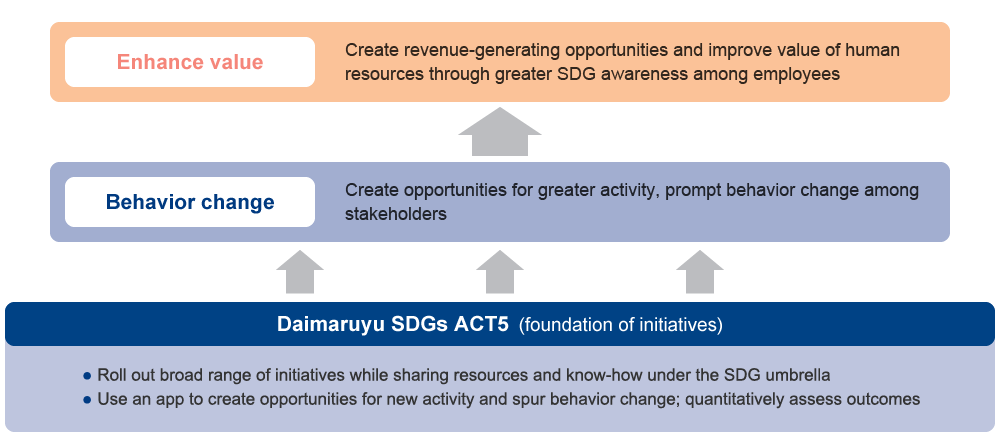ACT5 features a smartphone app as its backbone and quantifies behavioral changes conducive to achieving SDGs (see figure). In 2022, the program’s third year, its partnership encompassed 84 businesses and organizations in and beyond the Daimaruyu area, and over 2,500 people used the app.
The program has two distinguishing features.
The first is its foundation—how it pools the capital, personnel, and know-how of multiple businesses in and around the Daimaruyu area, where some 4,300 businesses are located and some 280,000 people come to work. This makes it possible for ACT5 to pursue a broad range of themes and initiatives that individual businesses would have trouble pulling off on their own.
The second is that ACT5 rewards participating consumers (“members”) with tradable points when they engage in desired behaviors, like attending SDG seminars or recycling resources.
Specifically, members download an app onto their smartphones and then every time they engage in an SDG-oriented behavior at a ACT5-partner shop or location in the area, they earn ACT5 Member Points that can be exchanged for sustainability-friendly benefits or donations to charities. Data accumulated via app use enables the quantitative assessment of behavior change. These insights help partners enhance their corporate value.
[Figure] Conceptual path from SDG-conducive measure to enhanced corporate value via behavior change

Source: Mitsubishi Research Institute, Inc.


